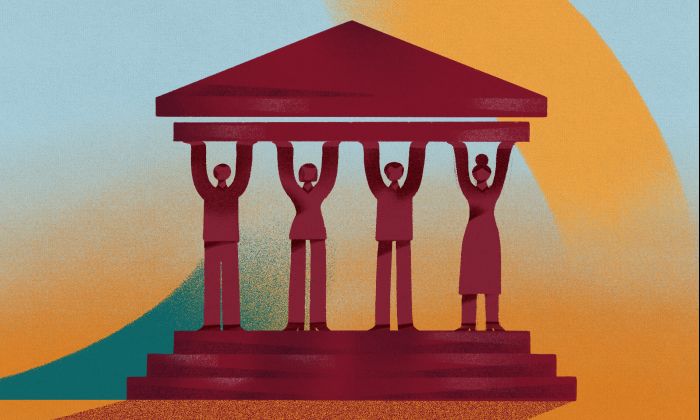 Shaping Successions
Shaping Successions
 Advancing Governance
Advancing Governance
 Discovering Leaders
Discovering Leaders
 Developing Leadership
Developing Leadership
From stability to sense of mission, the public sector career path offers unique benefits that are drawing top talent from the private sector.

What the NGO world today needs is leaders who are not just mission-driven but are holistic thinkers.

Leaders of philanthropic foundations from Europe and the U.S. discuss the challenges and the major themes they see rising out of the global health crisis.

CEOs of NGOs share how the pandemic has changed their views on their organizations and their work in the world.

Across the world, top corporate officers are increasingly assuming a mantle of public leadership by driving purpose-directed company strategies and taking overt stands on important, sometimes divisive social issues.

Most CEOs are grappling with one particular challenge, irrespective of industry or geography: getting the right leadership talent. Governments face this challenge too. The Indian government has responded to this challenge by taking the initiative to invite executives from beyond the ranks of the civil service to apply for certain Joint Secretary posts.

In Emerging Markets Business, Egon Zehnder’s Sonny Iqbal and Richard Stark offered their perspective on one family business, Paraíso Verde, which was founded in Chile in 1911 and later fell into crisis following the loss of the founders.

Exceptional times require exceptional leadership teams. Now that the presidential election is over, the key to making America greater is a strategic series of presidential appointments.

Once heralded as the seat held by the best storyteller in the company, corporate communications is no longer about amplifying what an organisation wants to say. Social media and vanishing boundaries have exploded the old model. Instead, communications today has a very different focus: to manage the dynamic, two-way conversation between an organisation and its stakeholders.

The U.S. university is at an inflection point unlike anything it has experienced since its emergence at the beginning of the 20th century. The presidents of the largest universities oversee budgets that rival those of Fortune 1000 corporations and operations that can include medical centers, extensive real estate holdings, intellectual property portfolios, and athletic programs with lucrative television contracts and licensing deals.

In most developed economies around the world, public sector intervention is becoming more widespread. This not only includes new and stricter regulations, but even the state actively going back into business...

You are switching to an alternate language version of the Egon Zehnder website. The page you are currently on does not have a translated version. If you continue, you will be taken to the alternate language home page.
Continue to the website